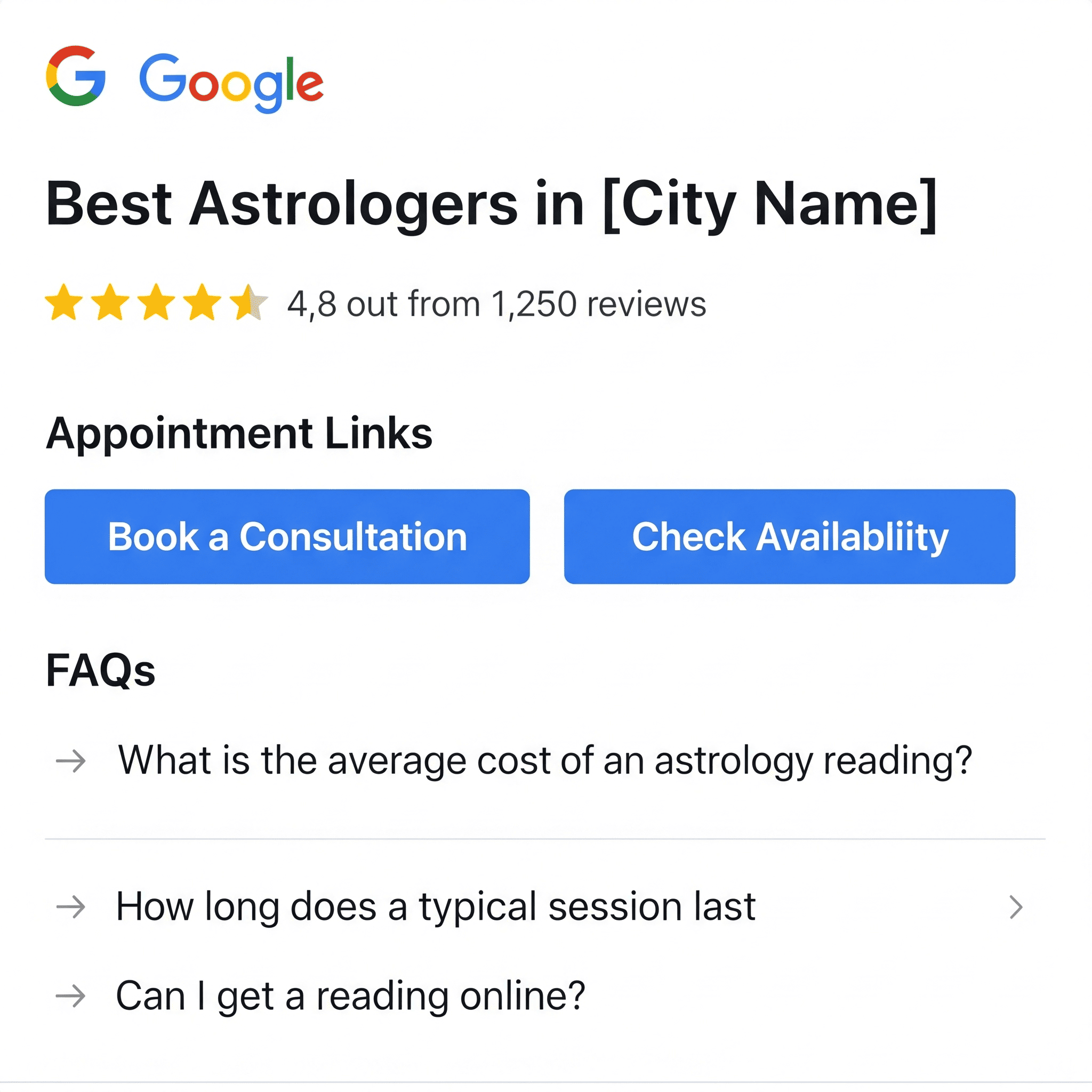August 4, 2025
Structured Data for Doctors: How to Signal Authority, Rank Higher, and Beat the System at Its Own Game
If Google can’t see you, you don’t exist. That’s the cold truth.
Most doctors still think visibility comes from referrals and reputation. But in 2025, the battlefield has moved. Your website isn’t a brochure—it’s your tactical base of operations. And right now, most private practices are flying blind with zero intel being sent to the one source that determines 90% of your new patient flow: Google.
This isn’t about buying ads. It’s not about writing blogs for the sake of "content marketing." This is about embedding trust and clarity directly into your site’s code—so search engines know exactly who you are, what you offer, and why you’re the best choice in town.

That intel package? It’s called structured data. It’s how you cut through the noise, bypass the bloated hospital sites, and rank with authority even if you’ve got a team of one.
Hospitals have the budget. You’ve got the edge. They move slow, confuse algorithms, and deploy outdated infrastructure. You move lean, speak directly to the machine, and get rewarded with the two things that matter most: visibility and trust.
Structured data is how you win local. It's the difference between being an option… and being the obvious choice.
No more flying dark. Time to light up your digital signature and get seen.
Structured data sounds technical. That’s because it is. But here’s what matters: it’s just a clear communication line between your website and the search engines.
Think of it as your encrypted radio transmission to Google. Without it, Google guesses. With it, Google understands.
Structured data is a type of code—usually written in JSON-LD—that you embed into your site to describe your practice in the clearest possible terms. It’s invisible to the human eye but critical to the algorithm.
It tells search engines things like:
Without schema, Google scrapes your site and tries to piece it all together like bad recon. With schema, you hand them the playbook and say, “This is exactly what we do. Here’s how we help. Send the right people our way.”
Most doctors don’t even know this exists. Most developers slap on a plugin and call it done. That’s like taping a walkie-talkie to your chest and hoping it picks up a signal.
The right structured data tells Google:
This isn’t extra. It’s essential.
When you’ve got structured data deployed the right way, you start showing up with rich results. Stars. Service menus. Map pins. FAQs. Appointment links. While your competition blends into the noise, you pop right off the page.
You're not just another clinic. You’re the clinic Google understands, trusts, and pushes forward.
That’s how small, independent practices beat the big networks.
They speak clearly.
They move precisely.
They signal authority.
Structured data is the language of that authority.
Structured data isn’t just some nerd trick. It’s a force multiplier.
When deployed with precision, it unlocks a cascade of visibility upgrades most doctors don’t even know exist. You’re not changing your message—you’re making it loud and clear to the right decision-maker: the algorithm.

First, you get rich results. That means when someone searches “testosterone therapy near me,” your result isn’t just a blue link. It shows review stars. Your business hours. Maybe a dropdown of FAQs or a booking button. It looks authoritative because the machine knows it’s authoritative.
Second, schema speeds up indexing. You don’t have to wait days or weeks for Google to figure out your latest service page. You’ve already handed them a digital field manual. They index faster, and you rank sooner.
Third, you dominate local search. Schema reinforces your geo-relevance, which means when someone in your zip code is looking for the services you provide, your practice shows up before the bloated hospital down the road.
Fourth, it gives you an edge in voice search. More and more patients are asking Siri or Alexa for help. Structured data increases your chances of being the spoken answer. That’s high-trust, zero-competition territory.
Fifth, schema fuels your reputation armor. If your reviews are built into your structured data, those stars can show up right in search—before a patient ever lands on your site. That’s instant credibility.
Let’s build your digital infrastructure right →
Big systems almost never get this right. They rely on brand momentum and clunky CMS setups that strip out real customization. Their schema’s usually broken, duplicated, or missing entirely.
That’s your edge. While they rely on scale, you rely on precision.
And precision always wins.
This is where most developers either fake it or flinch.
They install a plugin like Yoast or RankMath and assume the job is done. But off-the-shelf schema is like default loadouts—it’s better than nothing, but it’s not made for your mission.
Schema should be custom. Tailored to your services, your specialties, your location, your reviews, your unique offerings.
Manual deployment in JSON-LD is the gold standard. Clean, stable, and easy to validate. It sits in the <head> of your HTML and gives Google an instant, structured read on your practice.
Want to know if your site’s firing clean signals? Use Google’s Rich Results Test or Schema Markup Validator and see for yourself. If it’s red, broken, or missing—you’re invisible.
Let’s build your digital infrastructure right →
Here’s a tactical snapshot of essential schema types for most doctors:
Bonus: If you offer online booking, embed Event or Appointment schema. It helps Google link directly to scheduling from search.
You’re not just optimizing a site—you’re setting up clean comms that make your practice unmissable in a sea of static.
This is how you own your grid square online.
This is how you win local without begging for backlinks or burning cash on ads.
This is how you build a digital presence that earns trust before a patient ever calls.
Time to stop hoping and start deploying.
Hospital websites are digital dinosaurs. Heavy, slow, politically tangled, and riddled with blind spots.
They’ve got the budget but no agility. Every site edit requires a meeting. Every new page takes weeks. Their SEO? Outsourced to an agency that doesn’t know what a patient actually needs.
Structured data? Usually missing, duplicated, or half-implemented across 2,000 bloated pages.
They try to cover every specialty under one umbrella, but Google wants clarity. Specificity. Local relevance. That’s where you win.
While they’re busy building pages for departments you’ve never heard of, you’re building targeted schema that speaks directly to your ideal patient.
They shove “Physician,” “Organization,” and “MedicalClinic” all into one blob and confuse the algorithm. You deploy clean, separate schemas for each location, each service, and each doctor—each one a clear signal with no static.
Their site is run by committee. Yours is run with intent.
Their site is built for stakeholders. Yours is built for patients and search engines.
This is how guerrilla practices outperform empires. Focus. Simplicity. Tactical execution.
Let’s build your digital infrastructure right →
This part matters. Schema done wrong is almost as bad as no schema at all.
Here’s what trips most practices up:
– Copy-paste jobs from other sites. It might look like it works, but if you’re copying someone else’s structured data without editing, you’re injecting bad intel into your site. Wrong URLs, wrong labels, wrong fields. Google sniffs that out quick.
– Duplicate schema types. If you include multiple LocalBusiness or Physician schemas without clarity, you create conflicts. Google doesn’t know which one to trust, so it trusts neither.
– Inconsistent NAP (Name, Address, Phone). If the info in your schema doesn’t match your Google Business Profile or footer, your local ranking suffers. Details matter.
– Overreliance on plugins. RankMath and Yoast can help—but they don’t cover your specific services, reviews, or FAQs unless you customize them. Most people never touch the settings.
– Missing review or FAQ schema. These are easy wins. If you’re already posting testimonials or answering common questions, that data should be marked up so it shows in search.
– No validation. You should be running regular checks on your schema. Things break. Themes change. Plugins update. Use Google’s tools and keep your site clean.
This isn’t optional. It’s operational. You wouldn’t fly without comms. Don’t publish without schema.
Structured data isn’t “techy fluff.” It’s the language of trust in the algorithm’s eyes.
When your site speaks that language fluently, Google promotes you. Not because you’re the loudest. Because you’re the clearest.
This isn’t about chasing hacks or tricking the system. It’s about aligning your site with what search engines—and patients—are already looking for.
The big systems will always be slower. Always be heavier. Always be behind.
You? You get to be precise. Intentional. Undeniable.
You’ve chosen the hard road of independence. You’ve stepped outside the machine to build something honorable.
Now make sure the right people can find it.
If your site isn’t speaking the language of authority yet, we can help. We write structured data into the bones of every website we build. Not as a feature. As a foundation.
Because if you're not seen, you're not chosen. And if you're not chosen, you're not changing lives.
Let’s build your digital infrastructure right →
Command visibility. Speak with authority. Win local.